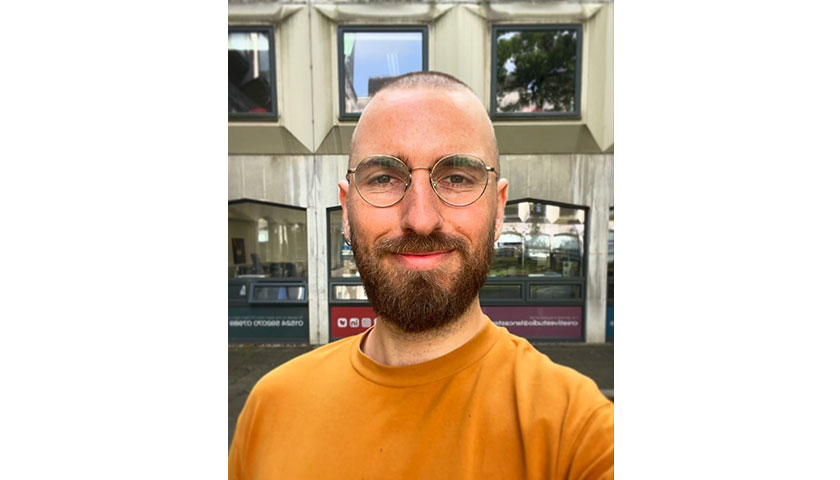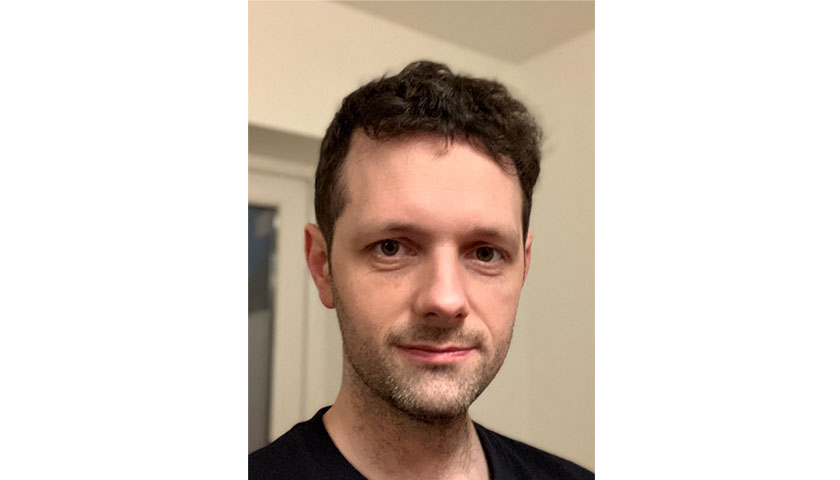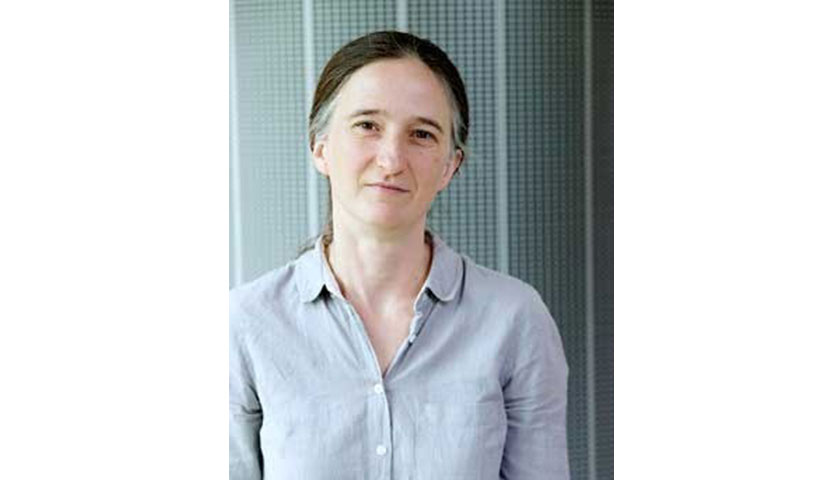Information about who will teach your course is correct at the time of publication. In some cases changes may be necessary and unavoidable, such as staff changes due to illness or leaving the University.
Overview
Top reasons to study with us
-
World Top 100 QS World University Subject Rankings 2025 (Arts & Humanities)
-
Develop critical thinking around a wide range of societal issues and concerns
-
Engage with leading, socially-engaged academics
The School of Global Affairs offers four master’s degrees that share a common ethos and course structure. Each provides distinctive yet interconnected opportunities to develop the skills, knowledge, relationships and partnerships needed to meet the global challenges of our time.
Why Lancaster?
- Discover the latest innovations and research insights in global medical and health humanities
- Develop critical, creative and cross-disciplinary approaches to health and medical challenges in global contexts
- Work with an interdisciplinary team with world-leading expertise in a diverse range of health research settings across the arts, humanities, and social sciences
- Learn global leadership skills that will equip you to navigate difficult decision-making
- Develop a practical and future-orientated understanding of how change is made
- Immerse yourself in Lancaster’s distinctive, collaborative environment
How can the humanities play a part in creating an inclusive, trans-cultural and global healthcare that is fit for the future? Our innovative master’s in Global Medical and Health Humanities starts at the forefront of existing knowledge and practices in medical and health environments around the world. Join us as we expand these boundaries through new knowledge and collaborative leadership.
Cutting-edge approaches to well-being, illness, and healthcare
The medical and health humanities are fast-evolving, interdisciplinary fields that marshal expertise in arts, humanities and social sciences to tackle healthcare challenges and drive positive future change.
The key values informing this exciting new field of study are interdisciplinarity, criticality, collaboration, and creativity. Through a range of team-taught modules that draw on the theories, methodologies and practices of humanities subjects, you will explore and address some of the major health and medical issues facing the world today and have the opportunity to contribute to cutting-edge health innovation.
These might range from addressing inequalities within health, exploring the need to create inclusive and diverse hospital environments, or engaging with difficult and sensitive issues such as sites of trauma, poverty and environmental crisis in healthcare settings.
You will develop critical and cross-cultural approaches to explore such areas as:
- Narratives and artistic expressions of mental health, illness and pain
- Sites of health activism and intervention
- The collaborative design of future spaces such as inclusive environments and hospitals fit for purpose
- The provision of health advocacy
- The de-colonisation of health, moving beyond Eurocentric, Anglophone perspectives
- Sustainability in healthcare
- Critical Disability Studies
- LGBTQIA+ healthcare
- Global histories of medicine and healthcare
Collaboration in practice
This master’s course is one of a series of four interconnected courses that have a common ethos and structure.
You’ll take part in subject-specific modules designed to build in-depth knowledge of global medical and health humanities. You’ll assess, engage in and create responses to real world issues.
In studio modules you’ll work collaboratively with other course participants on live community briefs, connecting Lancaster’s research with local healthcare environments and analysing global healthcare issues.
For some modules, you’ll join with students from other master’s cohorts on projects that will develop your leadership skills – using generative, collaborative thinking to create innovative solutions that are relevant to diverse external stakeholders.
Working with students from our other cohorts will bring you into contact with those specialising in global sustainability and the environment, AI, and global affairs. You’ll experience the benefits that harnessing skills and knowledge from diverse groups and subjects can bring.
You’ll have the opportunity to tailor your final project to draw on your academic, personal or professional experience and research ambitions. For example, if you are passionate about dis/ableism, representations of mental health in art practices or LGBTQI+ healthcare environments, you can explore these and many other topics during the course.
A range of innovative assessment types will give you the freedom to represent your chosen topic creatively and persuasively.
Leadership for the future of the world
With its dedicated leadership module, this course prepares you for a future as a collaborative change-maker. The course challenges traditional views of leadership. It adopts an understanding of inclusive leadership that is grounded in critical, creative and collaborative skills - a holistic and humanistic way of thinking.
By taking this interdisciplinary approach and engaging in the discourses of leadership ethics, you’ll be equipped to perform whatever role you take to bring about positive change.
You’ll benefit from the rich, collaborative environment in health innovation and research at Lancaster, being able to participate actively in research events and opportunities provided by the Faculty of Arts and Social Sciences Health Hub and the Queer Medical Humanities Network, as well as, beyond the Faculty, the health research ecosystem hosted at Lancaster's Health Innovation Campus.
Flexible study optionsStudy while continuing your career by taking this course on a part-time basis. Running over two years, you would take the following core modules each year:
- Year 1: Navigating, Applied Learning Studio 1, and Global Leadership
- Year 2: Applied Learning Studio 2 and MA Project
We would liaise with you over your choice of optional modules and your schedule, so that you can successfully balance your work and other commitments alongside the master’s programme.
Webinars and information sessions
Find out more about our programmes by joining one of our Global Leadership webinars.
Careers
This course will appeal to those already engaged in a professional role as well as graduates wishing to move into a challenging but rewarding career where you can make a difference to the world. It is an opportunity to extend your prior educational and work experience in new directions.
The master’s is suitable for students from a wide range of academic backgrounds and careers who are keen to work in healthcare innovation anywhere in the world.
You may be interested in roles within:
- The Intelligence services
- Health Activism
- NGO
- Health Advocacy
- Civil Service
- Health media and journalism
- Policy Making
- Healthcare and hospital design
- Research in the medical and health humanities
Entry requirements
Academic Requirements
2:1 Hons degree (UK or equivalent) in any subject, or 2:2 with professional experience relevant to the programme (please give further detail of your experience in your personal statement).
The personal statement should be a 300-500 word reflection on your interest in the programme, the relevance of your experience and what you hope to gain from the programme.
The department plans to interview all eligible applicants.
If you have studied outside of the UK, we would advise you to check our list of international qualifications before submitting your application.
English Language Requirements
We may ask you to provide a recognised English language qualification, dependent upon your nationality and where you have studied previously.
We normally require an IELTS (Academic) Test with an overall score of at least 6.5, and a minimum of 6.0 in each element of the test. We also consider other English language qualifications.
If your score is below our requirements, you may be eligible for one of our pre-sessional English language programmes.
Contact: Admissions Team +44 (0) 1524 592032 or email pgadmissions@lancaster.ac.uk
Help from our Admissions team
If you are thinking of applying to Lancaster and you would like to ask us a question, complete our enquiry form and one of the team will get back to you.
We also have more details on our website about:
Pre-master's programmes
Delivered in partnership with INTO Lancaster University, our one-year tailored pre-master's pathways are designed to improve your subject knowledge and English language skills to the level required by a range of Lancaster University master's degrees. VisitINTO Lancaster University for more details and a list of eligible degrees you can progress onto.
Course structure
You will study a range of modules as part of your course, some examples of which are listed below.
Information contained on the website with respect to modules is correct at the time of publication, but changes may be necessary, for example as a result of student feedback, Professional Statutory and Regulatory Bodies' (PSRB) requirements, staff changes, and new research. Not all optional modules are available every year.
Core
core modules accordion
Running in an innovative studio format across 5 weeks, this module will provide learning through practice by setting you a live brief which you will work towards in group projects. Offering learning in project management and practice at an advanced level, projects will centre on how interdisciplinary humanities approaches can be applied to contemporary place-based challenges.
You will apply learning from your specific topic of expertise (e.g. Artificial Intelligence, Society and Global Challenges, Global Affairs, Sustainability and Environmental Futures, Global Medical and Health Humanities) to address these multi-dimensional challenges through multifaceted approaches.
Projects may be based on academically significant topics, thereby enabling you to become exposed to areas of contemporary research. Alternatively, they may be linked to ‘real world’ issues and external clients, thereby developing your abilities in professional practice.
This project-based module will incorporate studio sessions with lectures from a range of disciplinary experts and external stakeholders, workshops to support practical skills, and student-led group working in the studio space.
Running in an innovative studio format across 5 weeks, this module will provide learning through practice by setting you a live brief which you will work towards in group projects. Offering learning in project management and practice at an advanced level, projects will centre on how interdisciplinary humanities approaches can be applied to contemporary global challenges encompassing multiple locales and contexts.
You will apply learning from your specific topic of expertise (e.g. Artificial Intelligence, Society and Global Challenges, Global Affairs, Sustainability and Environmental Futures, Global Medical and Health Humanities) to address these multi-dimensional challenges that require multifaceted approaches.
Projects may be based on academically significant topics, thereby enabling you to become exposed to areas of contemporary research. Alternatively, they may be linked to ‘real world’ issues and external clients, thereby developing your abilities in professional practice.
This project-based module will incorporate studio sessions with lectures from a range of disciplinary experts and external stakeholders, workshops to support practical skills, and student-led group working in the studio space.
This module equips you with a range of practical skills required to lead the development and implementation of innovative solutions to global challenges within education, academia, business and society. As well as theories of leadership and followership, you will learn skills for leadership and collaboration which may include project and self-management, entrepreneurship, research and information literacy, communication, and partnership building.
A critical, decolonial lens is applied throughout, enabling you to reflect on your own positionality and prior learning and experience and connect these with discourses of leadership (and leadership ethics) in a range of contexts. Emphasis is placed on a humanities-led approach to leadership, grounded in critical, creative and collaborative skills, a holistic approach to the role of leadership in society, and humanistic thinking.
The teaching and learning are designed to be flexible and prioritise self-directed study, enabling you to develop your own unique set of leadership skills and traits which will prepare you for a wide range of leadership roles, further study or employment outside of academia. You will participate in workshops and work in self-directed Action Learning Sets which meet independently on a regular basis outside of the classroom.
This project module is a core component of the MA programmes in the School of Global Affairs. Students will be encouraged to explore and experiment with topics, ideas and methods during the core modules of their programme in order to devise and design their project. The project will normally be realised as a piece of individual work and can take a number of formats, which may include: a long form written dissertation, a multi-media formatted project, a creative intervention or a policy document. The School of Global Affairs will support students in working collaboratively and identifying external partnerships through which to develop the project. Students will be expected to draw on the multi-disciplinary aspects of their MA programme to devise critical, creative and future facing work.
Optional
optional modules accordion
This module will explore Gothic representations of, for example: pain and illness experience, chronic illness, psychiatric confinement, eating disorders, organ harvest and transplantation, genetic testing, and epidemic or disease emergence. Traditional Gothic tropes find ready echoes in illness.
Subjects may experience their bodies as uncanny, once familiar but now strange; they may feel helpless and physically vulnerable; they strive to decipher the cryptic signs of the medical record and the body’s symptoms; they endure strange temporalities and carceral hospital sites; they are subjected to rituals of medical monitoring; and they become supplicants to powerful figures with mysterious knowledge.
The Gothic mode can be part of a critique of the complex biopolitics of medicine and illness. Yet at the same time, representing illness and pain through a Gothic mode can carry ideological risks, reinforcing problematic cultural assumptions about which human lives are of value. You will explore the promise and perils of the Gothic mode in the arena of health humanities and critical medical humanities.
What moral obligations do we have towards future generations – to people who are yet to be born, and to merely possible people whose very existence (or non-existence) depends on how we act now? This special subject explores this question by examining both a series of practical case studies and some of the main concepts and theories that philosophers use when thinking about these issues. Questions considered normally include:
- How should we weigh quality against quantity of life? Would a world with a relatively small number of ‘happier’ people preferable to one with many more ‘less happy’ ones?
- Ought we to try significantly to extend the human life span (to 150 years or beyond)?
- Should cryonics be permitted and what ethical issues does this raise?
- Is there a moral obligation to refrain from having children (e.g. for environmental reasons) and what measures may governments take to encourage or enforce population control? Conversely, might there be a moral obligation to have (more) children?
- Should we use selection techniques to minimise the incidence of genetic disorders and disabilities in future populations?
- Should parents be allowed to use these techniques to determine the characteristics of their future children (e.g. choosing their child’s eye or hair colour, or sex selection)?
- When considering the future, how should the interests of non-human creatures be weighed against those of humans? How strong are our moral obligations to prevent extinctions, and to preserve wildernesses?
- When considering long-term environmental issues (e.g. climate change, nuclear power) and long-term financial issues (e.g. national debt and pensions) how should we balance the interests and rights of people who exist now against those of future people?
How are gender, sex and bodies understood in contemporary sociology and feminist theory? How do feminist theorists and social scientists address questions of difference, representation and performativity in their research?
In this module, we engage with the work of particular theorists (enabling you to acquire skills in close reading and critical discussion), critically evaluate relevant empirical findings, and explore current issues of importance to sociology and feminism. Topics include medicalization and health, race and racism, sex and sexuality, bodily autonomy, and reproductive choice. The essays you write then give you scope to follow your own interests in more depth by using the reading lists provided and undertaking independent research.
This course considers conceptual questions around 'health' and 'disease' (and related concepts of 'disability', 'normality', 'medicine', 'treatment') and explores how these relate to issues of health policy.
We start by considering concepts of health and disease. Does whether a condition is a disease depend purely on matters of biological fact? Or, does a condition also have to be harmful to count as pathological? Is there any distinction that can be drawn between mental and physical disorders? Is it justified to treat people with mental disorders differently, e.g. in involuntary treatment? Should psychopaths who commit horrible crimes be considered to suffer from a disorder, or are they evil? What does it mean to say that someone is ‘normal’?
Many critics worry about medicalisation, and think that ever more conditions are coming to be considered diseases. Is this true, and does it matter? We’ll also consider conceptual issues connected to treatment. ‘Evidence Based Medicine’ aims to employ treatments that have been shown to work. But, how can it be determined whether a treatment works? What should the aims of therapy be? What is the distinction between medicines and other drugs?
Intercultural business communication plays a key role in the global economy and world commerce as it considers cultural differences between international business partners and clients. This interdisciplinary course examines how communication is affected by different values, attitudes and beliefs, in the context of our volatile, uncertain, complex and ambiguous environment.
The ability to effectively interact, work and develop meaningful relationships with professionals across different cultures and social groups is essential in a global workforce. Drawing on interdisciplinary research, this course will provide you with the necessary awareness, know-how and practical skills needed to become more effective at intercultural interactions. You will draw on various models to analyse your own experiences in order to develop a personal development plan to address effective interactions at work in the face of significant challenges. Studying intercultural business communication fosters an understanding of your own cultural, linguistic and communication related background. This may benefit future careers that operate within a multicultural context.
This module will give you the opportunity to study a language formally, in a way that will support any learning that you may have undertaken / be undertaking alongside your studies. You can enrol either as a beginner or as a more advanced student, building on existing knowledge.
Spanning over two terms, the module will help you develop transferable communicative skills and reflect on cultural and linguistic challenges which are relevant to your postgraduate studies and beyond, whether you intend to use these skills to research matters relating to intercultural and/or interlinguistic issues, work with archives, develop an international research network, or simply add them to your CV. You will be given opportunities to practise in your chosen target language, building on materials posted on the learning space (flipped classroom videos, self-study links) as well as other events organised for the community of linguists in the university, such as our weekly lunch clubs.
In the seminars & workshops, as well as through a series of optional drop-ins offered in the second term, this module will also give you the tools to approach materials which are relevant to your own academic and work interests.
In this module, you will be in control of your language learning and how you apply these skills to your studies / future work, which is reflected in the optionality offered for your final assessments.
This module will involve an in depth study of a number of contemporary debates in the philosophy of mental disorder. Topics will include the following:
What is mental disorder? You will be introduced to some of the key accounts of mental disorder: What is the relationship between evolutionary dysfunction and disorder? Are disorders necessarily harmful?
- Antipsychiatry/ postpsychiatry - The antipsychiatrists (and more recently postpsychiatrists) argue that the very concept of mental disorder is dubious. Are mental disorders substantially like physical disorders? Or, do diagnoses of "mental disorder" simply label behaviour that is unusual, socially stigmatised, or bad?
- Conceptualising cultural variations - Do mental disorders vary from culture to culture? Would cultural variation mean that a disorder is less "real"?
- Realism and constructionism about mental disorder - What does it mean to say that a disorder is real or constructed?
- Meaning and the limits of reduction - Can symptoms be reduced to faulty brain states? Or, do symptoms such as "delusion" resist reduction?
Fees and funding
| Location | Full Time (per year) | Part Time (per year) |
|---|---|---|
| Home | £11,960 | £5,980 |
| International | £24,830 | £12,415 |
Additional fees and funding information accordion
There may be extra costs related to your course for items such as books, stationery, printing, photocopying, binding and general subsistence on trips and visits. Following graduation, you may need to pay a subscription to a professional body for some chosen careers.
Specific additional costs for studying at Lancaster are listed below.
College fees
Lancaster is proud to be one of only a handful of UK universities to have a collegiate system. Every student belongs to a college, and all students pay a small College Membership Fee which supports the running of college events and activities. Students on some distance-learning courses are not liable to pay a college fee.
For students starting in 2025, the fee is £40 for undergraduates and research students and £15 for students on one-year courses.
Computer equipment and internet access
To support your studies, you will also require access to a computer, along with reliable internet access. You will be able to access a range of software and services from a Windows, Mac, Chromebook or Linux device. For certain degree programmes, you may need a specific device, or we may provide you with a laptop and appropriate software - details of which will be available on relevant programme pages. A dedicated IT support helpdesk is available in the event of any problems.
The University provides limited financial support to assist students who do not have the required IT equipment or broadband support in place.
For most taught postgraduate applications there is a non-refundable application fee of £40. We cannot consider applications until this fee has been paid, as advised on our online secure payment system. There is no application fee for postgraduate research applications.
For some of our courses you will need to pay a deposit to accept your offer and secure your place. We will let you know in your offer letter if a deposit is required and you will be given a deadline date when this is due to be paid.
The fee that you pay will depend on whether you are considered to be a home or international student. Read more about how we assign your fee status.
If you are studying on a programme of more than one year’s duration, tuition fees are reviewed annually and are not fixed for the duration of your studies. Read more about fees in subsequent years.
Find all fees and funding information for students at Lancaster University.
Scholarships and bursaries
You may be eligible for the following funding opportunities, depending on your fee status and course. You will be automatically considered for our main scholarships and bursaries when you apply, so there's nothing extra that you need to do.
Unfortunately no scholarships and bursaries match your selection, but there are more listed on scholarships and bursaries page.
If you're considering postgraduate research you should look at our funded PhD opportunities.
| Scheme | Based on | Amount |
|---|---|---|
| Based on {{item.eligibility_basis}} | Amount {{item.amount}} |
We also have other, more specialised scholarships and bursaries - such as those for students from specific countries.
Browse Lancaster University's scholarships and bursaries.
-
Health Studies
-
Sociology
- Applied Social Science PhD
- Artificial Intelligence, Society and Global Challenges MA
- Environment and Society PhD
- Gender Studies MA
- Gender Studies PhD
- Gender Studies and English MA
- Public Policy MSc
- Science Studies PhD
- Social Research MA
- Sociology MA
- Sociology PhD
- Sustainability and Global Environmental Futures MA
Important information
The information on this site relates primarily to 2025/2026 entry to the University and every effort has been taken to ensure the information is correct at the time of publication.
The University will use all reasonable effort to deliver the courses as described, but the University reserves the right to make changes to advertised courses. In exceptional circumstances that are beyond the University’s reasonable control (Force Majeure Events), we may need to amend the programmes and provision advertised. In this event, the University will take reasonable steps to minimise the disruption to your studies. If a course is withdrawn or if there are any fundamental changes to your course, we will give you reasonable notice and you will be entitled to request that you are considered for an alternative course or withdraw your application. You are advised to revisit our website for up-to-date course information before you submit your application.
More information on limits to the University’s liability can be found in our legal information.
Our Students’ Charter
We believe in the importance of a strong and productive partnership between our students and staff. In order to ensure your time at Lancaster is a positive experience we have worked with the Students’ Union to articulate this relationship and the standards to which the University and its students aspire. Find out more about our Charter and student policies.









